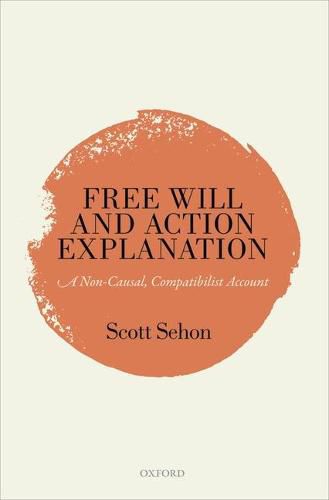Readings Newsletter
Become a Readings Member to make your shopping experience even easier.
Sign in or sign up for free!
You’re not far away from qualifying for FREE standard shipping within Australia
You’ve qualified for FREE standard shipping within Australia
The cart is loading…






Do we have free will and moral responsibility? Is free will compatible with determinism? Scott Sehon argues that we can make progress on these questions by focusing on an underlying issue: the nature of action explanation. When a person acts, or does something on purpose, we explain the behavior by citing the agent’s reasons. The dominant view in philosophy of mind has been to construe such explanations as a species of causal explanation. Part I of the book proposes and defends a non-causal account of action and agency, according to which reason explanation of human behavior is irreducibly teleological rather than causal. Part II applies the teleological account of action to free will and responsibility, arguing that the free actions–the ones for which we are directly responsible–are the goal-directed actions, the actions that are teleologically explicable in terms of our reasons. It is then argued that this non-causal account of action undermines the appeal of incompatibilist arguments, arguments attempting to show that free will is not compatible with determinism. Beyond this, Sehon argues that the non-causal compatibilist account works well in practice: it is in accord with our clear intuitions about cases, and it both explains and provides guidance in the cases where our intuitions are murkier.
$9.00 standard shipping within Australia
FREE standard shipping within Australia for orders over $100.00
Express & International shipping calculated at checkout
Do we have free will and moral responsibility? Is free will compatible with determinism? Scott Sehon argues that we can make progress on these questions by focusing on an underlying issue: the nature of action explanation. When a person acts, or does something on purpose, we explain the behavior by citing the agent’s reasons. The dominant view in philosophy of mind has been to construe such explanations as a species of causal explanation. Part I of the book proposes and defends a non-causal account of action and agency, according to which reason explanation of human behavior is irreducibly teleological rather than causal. Part II applies the teleological account of action to free will and responsibility, arguing that the free actions–the ones for which we are directly responsible–are the goal-directed actions, the actions that are teleologically explicable in terms of our reasons. It is then argued that this non-causal account of action undermines the appeal of incompatibilist arguments, arguments attempting to show that free will is not compatible with determinism. Beyond this, Sehon argues that the non-causal compatibilist account works well in practice: it is in accord with our clear intuitions about cases, and it both explains and provides guidance in the cases where our intuitions are murkier.